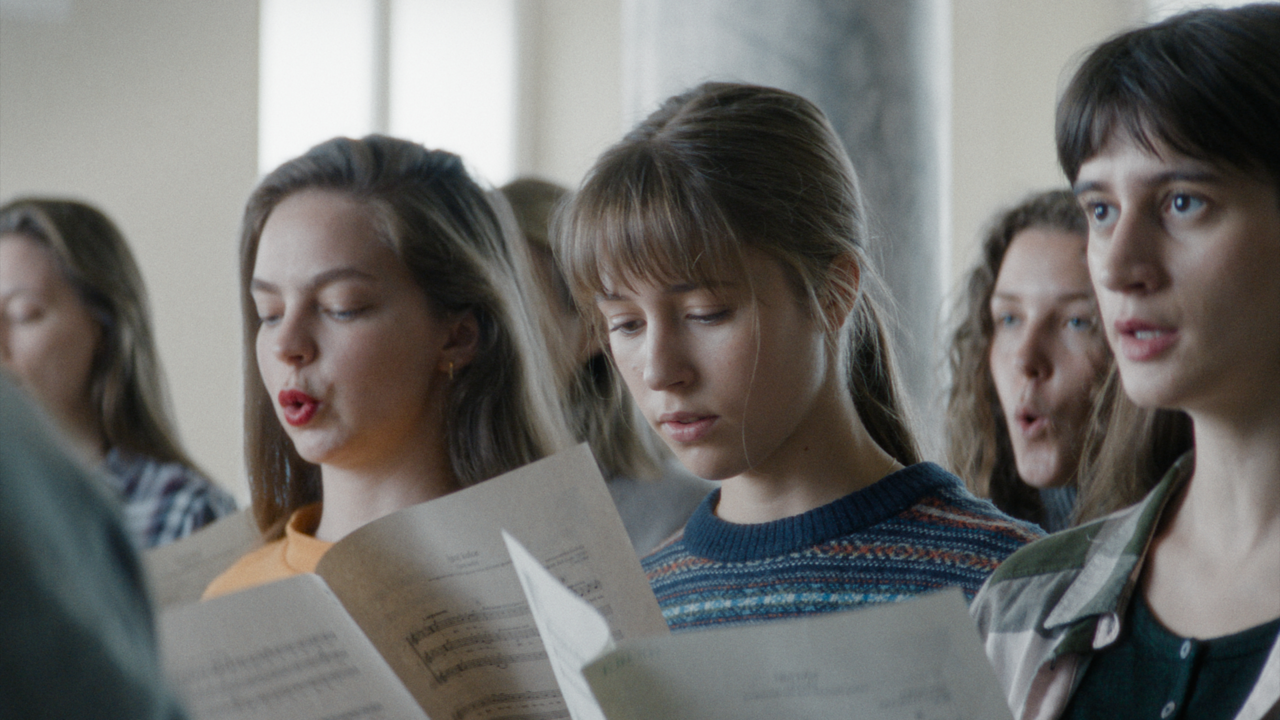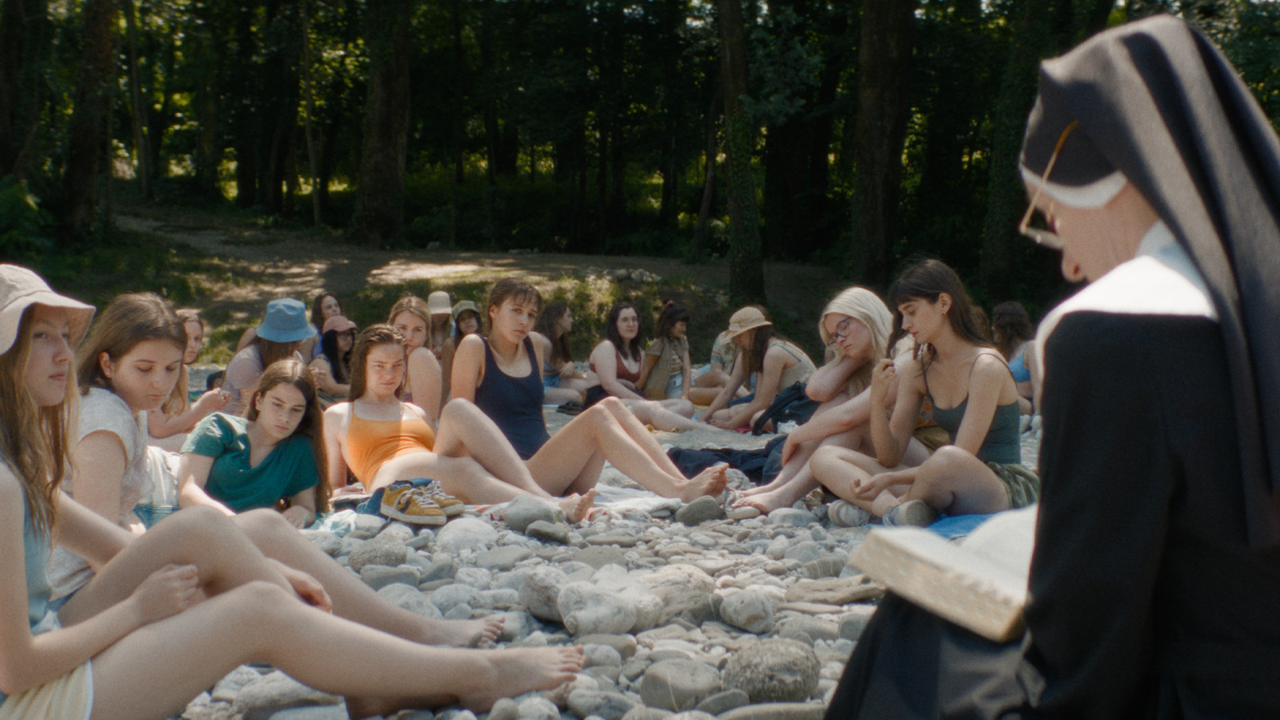

North American Premiere
Little Trouble Girls
International Narrative Competition
Feature | Slovenia, Italy, Croatia, Serbia | 89 MINUTES | Slovene | English subtitlesWomen, Drama, Narrative
To meet her mother's expectations, shy and sensitive sixteen-year-old Lucija (Jara Sofija Ostan) joins her local Catholic high school choir in Slovenia. Throughout her first year, she navigates the rigid expectations of her religious environment while timidly exploring her emerging curiosity about sexuality. When she catches the attention of her outgoing classmate Ana-Marija (Mina Švajger), the two girls develop an intense friendship that tests Lucija's boundaries. During a spring weekend of rehearsals at the Ursuline Sisters convent in Cividale, which is being renovated by Italian workers, Ana-Marija notices Lucija's interest in a dark-eyed worker (Saša Tabaković) and proposes a mischievous plan. Their reckless scheme leads to Lucija's sexual awakening, accompanied by overwhelming feelings of shame that prompt her to engage in a profound struggle with guilt over her natural impulses.
In her confident directorial debut, Urška Djukić crafts a visually stunning exploration of adolescent desire within a repressive religious context. The film's picturesque settings and strong performances from its young ensemble create an immersive experience that balances moments of youthful exuberance with the darker consequences of religious shame. Ostan delivers a breakthrough performance as Lucija, capturing the character's internal conflict with subtlety and expressive precision. While the coming-of-age narrative of girls in religious settings may feel familiar, Djukić's unique perspective brings a vivid intimacy to the emotional landscape of her characters, making their struggles feel both universal and deeply personal. A sensitive exploration of female sexuality, religious repression and the complex dynamics of adolescent friendship, Little Trouble Girls offers a poetically charged journey into the heart of growing up amidst conflicting messages.—Jarod Neece

